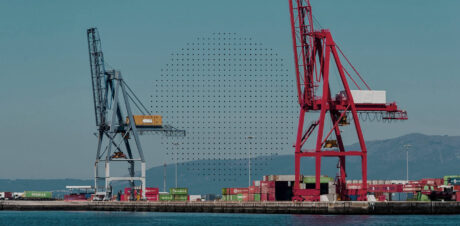Several characteristics of the Middle East region, and the United Arab Emirates (UAE) in particular, present increased risk for financial crime:
- Complex ownership relationships are common in the Middle East, increasing the risk of legal structures being misused to conceal beneficial ownership.
- The UAE has a high concentration of politically exposed persons (PEPs), who are deemed high risk from a money laundering perspective.
- The UAE sees a high number of cash transactions because it is a key destination and transit hub for migrant workers who frequently send cash remittances through money services businesses.
In the past, these risks have landed the UAE on lists for increased monitoring to counter money laundering, terrorist financing, and proliferation financing. Reforms within the country have delivered progress: the UAE was removed from the Financial Action Task Force (FATF) Grey List in February 2024 and from the EU’s high-risk jurisdiction list in July 2025.
Two recent laws aim to keep the UAE off such lists in the future.
>> Discover how co-location, contact information, and network analysis help reveal laundering schemes <<
New laws expand regulatory perimeter and enhance AML/CTF framework
Federal Decree Law No. 6 of 2025 consolidates regulations and grants the Central Bank of the UAE (CBUAE) authority over the financial sector. The new law substantially expands the CBUAE’s enforcement and penalty powers.
Law No. 6 increases the scope of covered entities to include platforms, decentralized applications, protocols, and other infrastructure that facilitate or enable financial services. These entities now require licensing and fall within CBUAE supervision, even if the provider is not itself a bank, insurer, or payment service provider.
Entities whose activities fall within the scope of the new law have one year from the September 16, 2025 enforcement date to ensure compliance.
Additionally, Federal Decree Law No. 10, effective from October 14, 2025, enhances the UAE anti-money laundering (AML) and counter terrorist financing (CTF) legal and regulatory framework.
Key changes within Law No. 10 include:
- Covered entities: Adds virtual asset service providers and non-profit organizations to previously covered financial institutions and designated non-financial businesses and professions (DNFBPs).
- Beneficial ownership definition: Expanded to link control “directly or through a chain of ownership or other indirect means,” to be determined by executive regulations.
- Proliferation financing: Introduces criminalization of financing acts relating to the manufacture, possession, transport, sale, or use of weapons of mass destruction and dual-use items.
- Lower evidentiary threshold: Previously, prosecutors were required to prove actual knowledge that the funds were criminal proceeds. Now, “sufficient evidence or circumstantial evidence” is enough, and knowledge can be inferred from the “factual and objective circumstances.” This means that a person can more easily be prosecuted for money laundering, terrorist financing, and proliferation financing if they knew or should have known that the funds would be used to commit an offense.
Sanctions and penalties have also increased, and penalties for new offenses have been imposed.
Complying with new UAE regulations
The new UAE laws cast a wide net across financial institutions, fintech providers, non-profit organizations, and DNFBPs. In-country and foreign entities doing business in the region must perform enhanced due diligence to determine ultimate beneficial ownership, identify money laundering (including trade-based money laundering (TBML) and real estate money laundering schemes), and screen entities against sanctions lists related to the proliferation of weapons of mass destruction.
>> Learn how to minimize your organization’s exposure to real estate money laundering <<
Sayari is helping Middle East organizations confidently address compliance challenges
with intelligent risk solutions. Our data provides detailed profiles on 826M companies and 791M individuals across 250+ jurisdictions worldwide. Using Sayari, financial institutions can conduct AML investigations faster with pre-computed counterparty networks — complete with unique identifiers, names, contact information, registration dates, and more — to effectively identify export control risk, uncover front companies, and discover fraudulent networks.
Sayari data provides beneficial ownership information for both risky and non-risky entities, streamlining whitelisting and minimizing false positives — without all the manual work. In addition, Sayari’s import-export data for 70+ countries helps organizations conduct efficient TBML investigations.
To learn more about how Sayari can help your organization comply with the new UAE laws, request a personalized demo.



